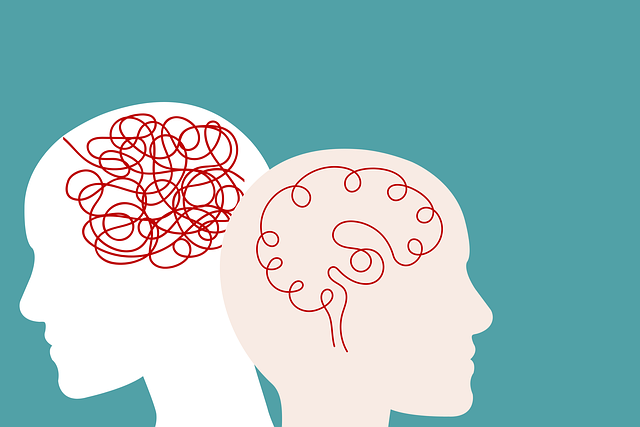Golden Christian Counseling Therapy employs faith-integrated self-assessment tools for comprehensive mental wellness evaluation. These evidence-based methods, combining spiritual principles with traditional counseling techniques, offer personalized treatment plans focused on inner strength and trauma support. By integrating biblical teachings with stress management and reflection exercises, these tools cater to individuals seeking guidance aligned with their religious beliefs, promoting holistic mood management and improving therapy outcomes.
Mental wellness self-assessment tools play a crucial role in enhancing Golden Christian Counseling Therapy. This article delves into three key aspects: understanding the foundational importance of these assessments, designing effective tools that incorporate faith-based principles, and implementing strategies for seamless integration into clinical practice. By exploring these elements, counselors can provide more tailored and impactful support for their clients’ mental wellness journeys.
- Understanding Mental Wellness Self-Assessment: The Golden Standard for Christian Counseling Therapy
- Designing Effective Tools: Incorporating Faith-Based Principles in Self-Assessment
- Implementation and Impact: Strategies for Integrating Self-Assessment Tools in Clinical Practice
Understanding Mental Wellness Self-Assessment: The Golden Standard for Christian Counseling Therapy

Mental wellness self-assessment tools stand as the cornerstone for effective Christian counseling therapy. These assessments provide a structured framework to evaluate an individual’s mental health, enabling counselors to tailor interventions precisely to their client’s needs. By employing evidence-based methodologies, therapists can gain valuable insights into their clients’ emotional well-being, thoughts, behaviors, and overall functioning. This process facilitates the development of personalized treatment plans that focus on fostering inner strength and offering trauma support services, ultimately leading to anxiety relief.
The golden standard in Christian counseling therapy requires a comprehensive understanding of the client’s spiritual, emotional, and psychological dimensions. These tools are designed to capture not only the presence of mental health disorders but also the client’s resilience, coping mechanisms, and inherent capacity for growth. By integrating faith-based principles, counselors can offer holistic support that resonates with individuals seeking guidance aligned with their religious beliefs. Effective self-assessment paves the way for targeted interventions aimed at promoting mental wellness and enhancing the overall quality of life.
Designing Effective Tools: Incorporating Faith-Based Principles in Self-Assessment

In developing self-assessment tools for mental wellness, incorporating faith-based principles can offer a unique and powerful approach to support individuals’ well-being. Golden Christian Counseling Therapy emphasizes the integration of spiritual beliefs into therapeutic practices, recognizing that faith can significantly influence one’s mental health journey. By combining evidence-based counseling techniques with religious or spiritual doctrines, these tools aim to cater to a diverse range of users seeking both professional guidance and a connection to their higher power.
The design of effective self-assessment programs should focus on creating an inclusive environment where individuals from various faith backgrounds can reflect on their mental health. This might involve incorporating biblical passages, prayer practices, or spiritual reflection exercises alongside traditional mental health questionnaires. For instance, a Mental Health Education Program could teach stress management techniques tied to specific religious practices, promoting mood management through a holistic lens that respects and nurtures one’s spiritual beliefs.
Implementation and Impact: Strategies for Integrating Self-Assessment Tools in Clinical Practice

The implementation of self-assessment tools in clinical practice offers a promising approach to enhancing mental wellness. These tools, designed to promote self-reflection and personal growth, can significantly impact the therapeutic process at Golden Christian Counseling Therapy. One effective strategy is to integrate these assessments as initial risk evaluations, providing valuable insights into clients’ psychological states and potential areas of concern. This proactive approach allows mental health professionals to tailor their interventions accordingly, ensuring a more personalized and efficient treatment plan.
Furthermore, self-assessment tools can facilitate ongoing monitoring of mental wellness. By incorporating conflict resolution techniques and encouraging regular reflection, individuals gain a deeper understanding of their emotional well-being. This process empowers clients to actively participate in their therapy, fostering a collaborative relationship with their counselors at Golden Christian Counseling Therapy. Such integration not only improves treatment outcomes but also strengthens the overall effectiveness of mental health services.
Mental wellness self-assessment tools, enriched with faith-based principles, offer a powerful resource for Golden Christian Counseling Therapy. By integrating these tools into clinical practice, therapists can facilitate deeper insights and meaningful transformation in clients’ mental health journeys. Through strategic implementation, self-assessments empower individuals to take ownership of their well-being while aligning their lives with spiritual values. This approach not only enhances therapeutic outcomes but also contributes to a holistic healing process that resonates with the core principles of Golden Christian Counseling Therapy.













